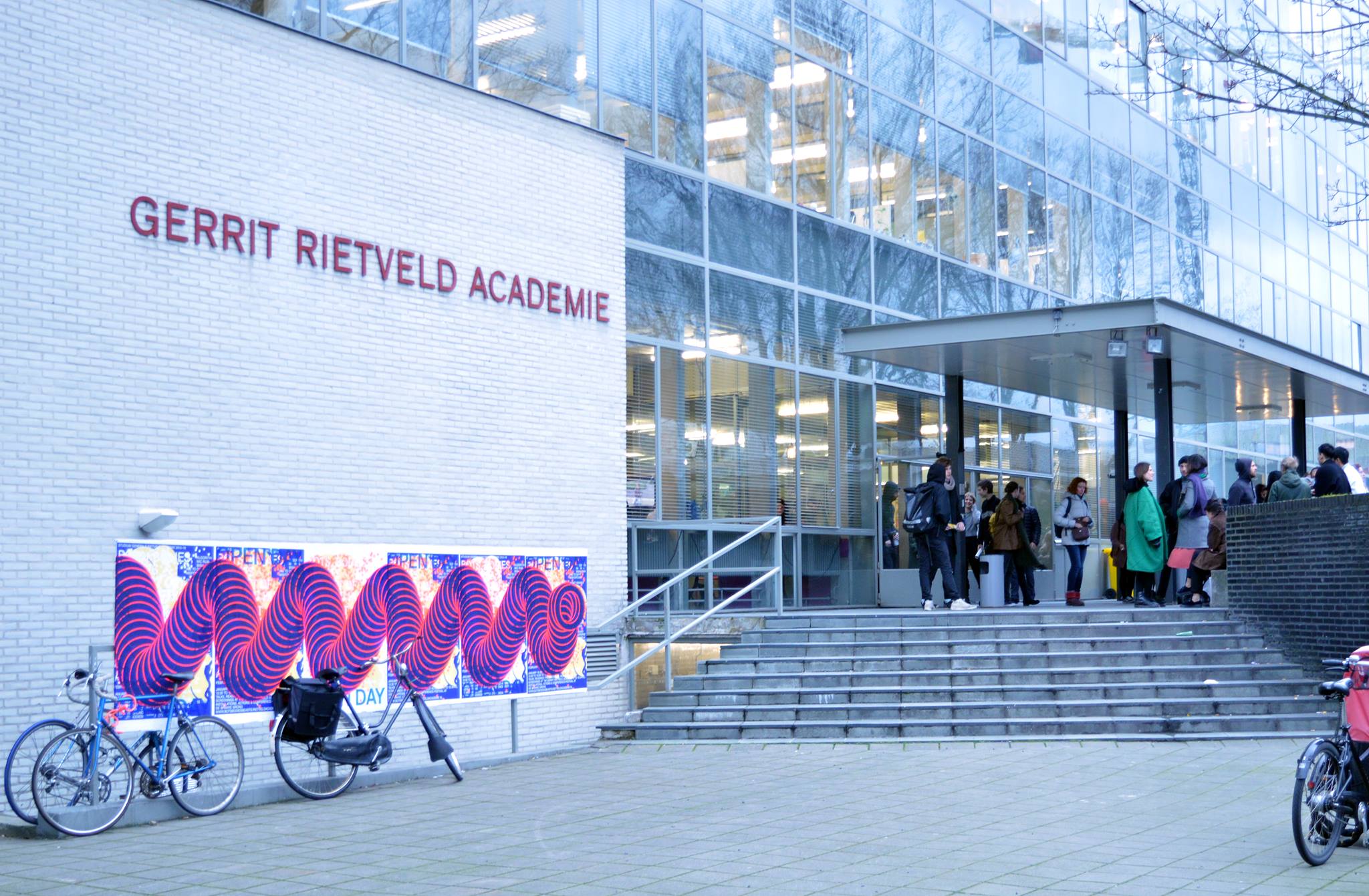
Amsterdam’s prestigious Gerrit Rietveld Academie is renowned for shaping generations of avant-garde artists and is not known to shy away from controversy. But now, a campus debate between the provocative art collector Bert Kreuk and the inflammatory artist duo KIRAC—whom students claim promote racism, misogyny, and homophobia—has provoked an uproar over the bounds of free speech.
Bizarrely, the school is currently most at odds over a debate about a debate about the debate.
The school—one of Europe’s most celebrated art academies—originally extended an invitation to the duo Stefan Ruitenbeek and Kate Sinha, known as Keeping It Real Art Critics (KIRAC), to screen a video the artists had produced about Kreuk and discuss the value of conceptual art with the collector before an open audience of students. Although Kreuk and KIRAC disagree significantly about what makes art matter, both share the view that, as Kreuk put it, “when you do not agree with someone is precisely when you have to enter a discussion or debate.”
After news of the February 8 event was announced, however, around a dozen students took to Facebook to demand the invitation to the duo be revoked. They claimed that KIRAC—which has produced videos that discuss the allure of Harvey Weinstein and his assaults and wrote that a recent exhibition of Zanele Muholi’s work at the Stedelijk Museum was staged only “because she comes from South Africa and is lesbian and black”—promotes racism, misogyny, and homophobia. An institution as prestigious as the Reitveld, they said, should not offer them a platform.
Bowing to pressure, the school canceled the talk. “Numerous alumni, students, and teachers have expressed their concerns regarding previous KIRAC statements that touch on diversity issues,” the school wrote Ruitenbeek in an email provided to artnet News. “Being an institution of education… we give priority to our responsibility to guarantee a safe learning environment.”
Before long, however, a sympathetic student offered to host a makeshift version of the event in his studio. But just hours before the unauthorized debate was due to begin, the school’s board of directors decided to reinstate the talk on campus—as long as the conversation centered on the debate over the decision to cancel the initial event.
Illustration for event: “100% Integrity with art collector Bert Kreuk” at the Gerrit Rietveld Academie.
“We had invited [KIRAC] for a private discussion to explain our decision,” Annelies van Eenennaam, the president of the school’s board, told artnet News ahead of the talk this evening. “A journalist asked me why it should take place behind closed doors, why we won’t stand up publicly, and I thought, yes—so we are doing it to stand up for our decision.”
On the heels of the last-minute change, Kreuk, KIRAC, and Van Eenennaam gathered in the gym before an estimated 100 people. They planned to discuss not the original subject of the talk—collecting—but the decision to cancel the event.
Still, Van Eenennaam maintains the change of plans is not an endorsement of the duo’s work. “Some of their footage is of a nature I find unacceptable and that crosses lines I think should not be crossed,” she said.
Bert Kreuk. Courtesy of Bert Kreuk.
KIRAC is no stranger to controversy: It’s their métier. In the guise of art critics, the couple frequently attacks established norms and ideas within the art world through video interviews. Ruitenbeek, himself a Rietveld graduate, describes them as “artists using opinions as our material,” though, he noted, “that doesn’t mean everything we say is ‘performance.’ The theatrical aspect sort of derives from the fact that we’re extremely serious about the things we say.” Still, he was surprised by the force and speed of the school’s reaction.
The student Jonathan Aldenberg, who was among the first to object to the talk, maintained his skepticism about the debate. “We do feel that this KIRAC event and the following media attention is part of KIRAC’s strategy to undeservedly gather attention for their work,” he said.
For his part, Kreuk—whose own controversial analysis of the art world, Art Flipper, is currently being translated into English—was energized ahead of the conversation. Despite his own concerns about KIRAC’s views, “I don’t block them, I engage,” he says. “Something the Rietveld should do, too.”